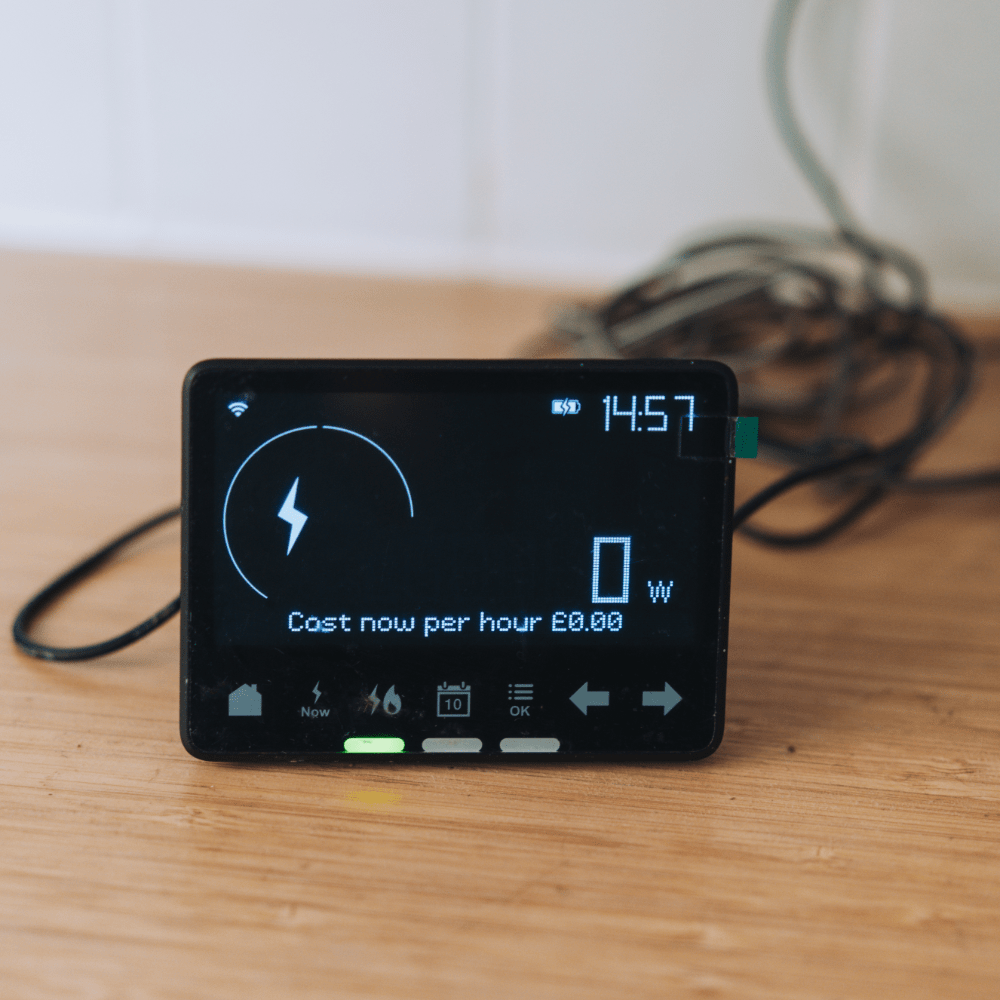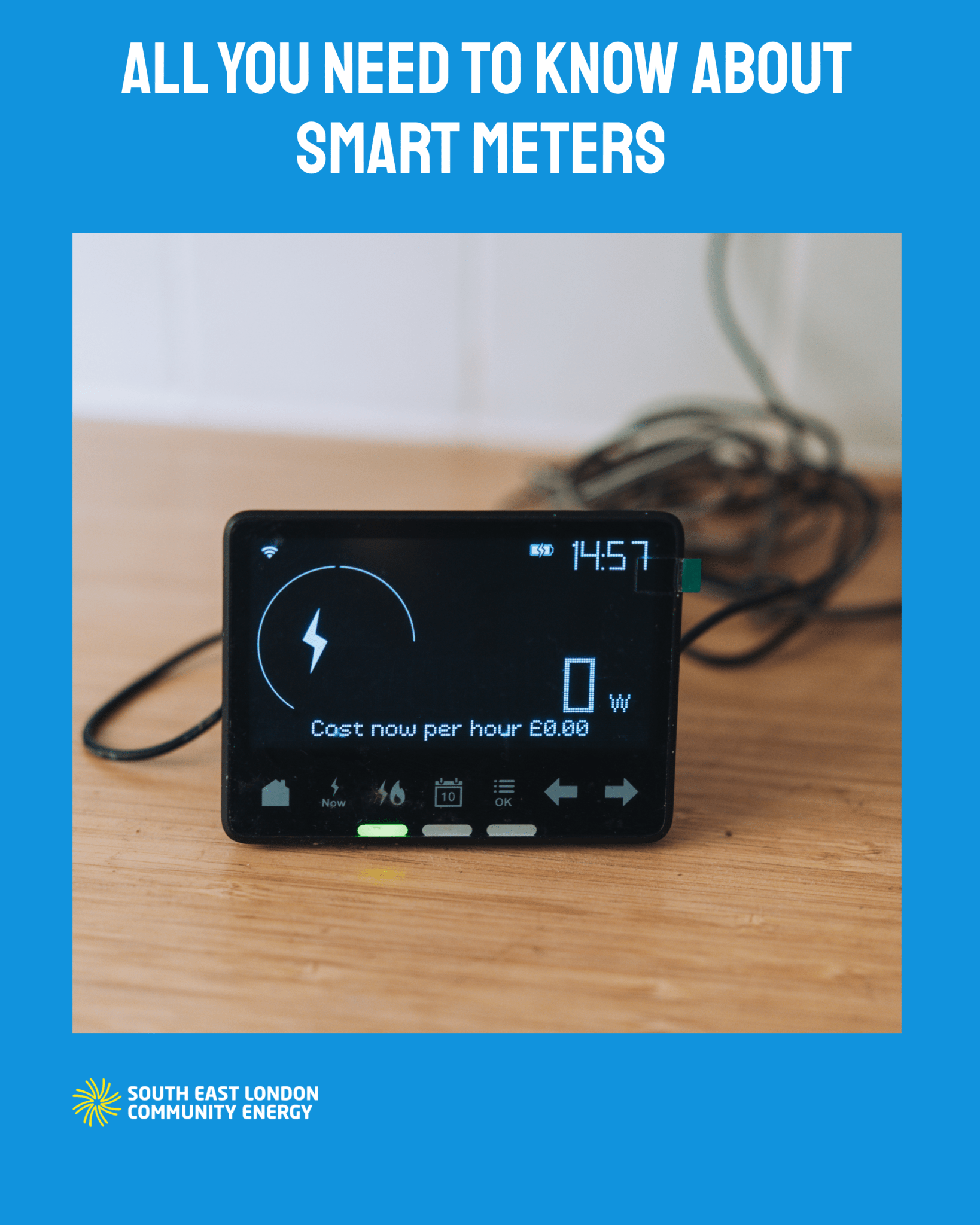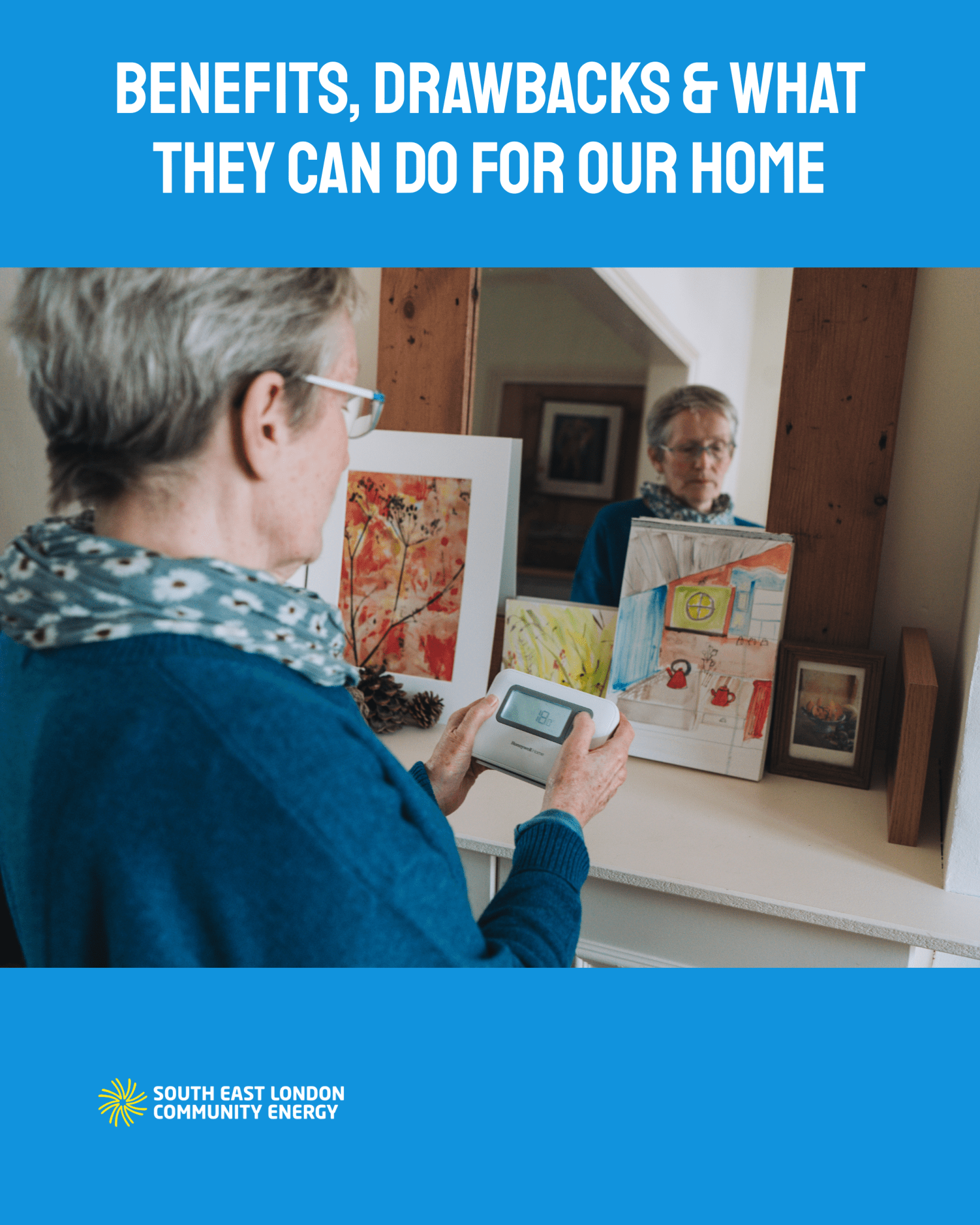All You Need to Know About Smart Meters - Benefits, Drawbacks & What They Can Do For Our Home

While delivering energy advice or at community events, many people have asked us about smart meters, should we get one? What are the benefits or drawbacks? And what can they do for our home?
So, by popular demand, here we cover all you need to know on smart meters:
What are smart meters and how do they work?
Smart meters are a newer type of meter which measures how much gas and/or electricity you are using.
They come with the meter itself, an In-Home Display (IHD) unit where you can see how much gas and electricity you are using, and a communication hub which allows the meter and the IHD to communicate with each other.
You should see updates from your smart meter every 30 minutes for gas and near real time for electricity. In most cases, there is a separate meter for gas and electricity.
What are the benefits of having a smart meter?
1. Access to better tariffs and money saving opportunities
– With a smart meter, you can get access to better tariffs like the economy 7 tariff and the time of use tariff. These tariffs allow you to use cheaper off-peak energy rates. These vary by supplier, and you need to sign up through your supplier to get access to cheaper rates.
Most of the time these rates are over the weekend and at night. A smart meter also provides access to money saving opportunities like the demand flexibility services. This service uses several energy saving ‘events’ throughout the year where if you sign up, you could be asked to use less electricity in a certain period, and you get rewards through this.
2. Convenience and accuracy of bills
– Smart meters mean an end to inaccurate, estimated bills. This is because smart meters send your readings automatically to your supplier, so you don’t have to give them in at the end of every month and risk paying higher estimated bills.
Therefore, your energy supplier will have an accurate reading of your energy use, so you’ll only ever have to pay for how much energy you use.
3: Lower energy usage
– With a smart meter, you can see and understand your energy usage. This is due to your In-Home Display (IHD) unit showing how much energy you use and how much it costs, and updating your energy use as mentioned above.
From this, you can see and understand how much energy your home appliances use and cost, helping you manage and budget your bills accordingly. Overall, this can lower bills and your carbon footprint.
Are there any issues with having a smart meter?
There have been a few issues reported with smart meters. These are:
💡 Faulty smart meters where the smart meter IHD may not be working properly or the meter is not sending accurate readings to the supplier.
💡 Meters placed far away from the IHD can encounter issues with connecting properly, but that is being solved by a dual band communications hub, which uses a longer-range frequency to communicate with the smart meter.
💡 Smart meters have a 12-month warranty. If your smart meter becomes faulty after 12 months, some energy suppliers charge to get it replaced, but some also still do it for free.
💡 In 2024, it was found that approximately 4 million smart meters were faulty in some form out of 38 million.
Where do I get help if I am having issues with my smart meter?
For assistance with smart meter issues, Selce and our friendly energy advisors can support you in helping to understand how it works and assist in contacting your energy supplier to solve any issues with it.
You can also contact your energy supplier directly, or the energy ombudsman.
Is there a rollout of smart meters in the UK?
Yes, the government have required energy suppliers in England, Scotland and Wales to provide smart meters to their customers. The government has targets for smart meters to be installed in 74.5% of homes in Great Britain by the end of 2025. Currently, 60% of households have a smart meter installed.
If you don’t have one already, the chances are that you will be offered one by your energy supplier within the next year or so.
Do I have to have a smart meter?
Smart meters are not compulsory, and you can refuse the installation of smart meters when offered one. Additionally, you can ask your energy supplier to put your smart meter in ‘dumb’ mode. Where the smart function is removed and it acts as a traditional meter. However, it’s worth noting that you would then still need to send your meter readings, and some energy suppliers do not support the ‘dumb’ mode.
However, there are also situations where you won’t have a choice, these are:
💡 If your traditional meter is faulty
💡 If it has reached its end of life (meters last 10-20 years)
Energy suppliers now replace faulty meters and out of date meters with smart meters, unless there is a good reason not to or the supplier has some traditional working meters left that can be installed.
If I want one, how do I go about getting one and is there a cost to this?
Installation of a smart meter if free of charge and done by your energy supplier. If you would like one, you just need to contact them and ask!
Are there some households that can’t get a smart meter?
Yes this is true, not every household can use a smart meter for several reasons:
💡 There is no accessible area for the smart meter, meaning an engineer can’t access the meter
💡 There is not enough space to install the smart meter where the previous meter was installed
💡 In some areas, like high rise flats, smart meter installation is not possible. This is because the meters are installed in once place, and there may not be enough room for a meter for every flat.
We hope that this information answers any questions you may have about smart meters, and of course if you ever need any support relating to smart meters or something else, please don’t hesitate to contact Selce.
Find more information on the Smart Energy GB website


